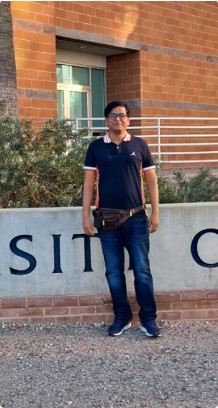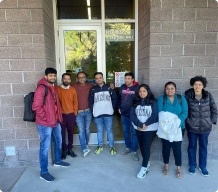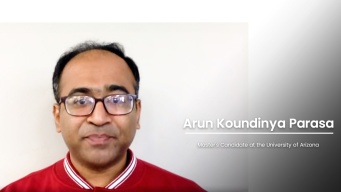Study Abroad Programs
Study Abroad Programs combine virtual learning with on-campus learning in the USA or Germany. Get the best of both worlds and gain invaluable knowledge and cultural experience. Enhance your qualifications and make the most of your study abroad journey
-

Save upto 1/3rd of your degree cost
-

No GRE/GMAT Required
-

Get Post Study Work visa in the USA or Germany


ENQUIRE: +1 520 341 2109

Learner Testimonials
A few of our learners share their experience of the program
-
 Watch story
Watch story"I always had the hope to come to the USA, stay here and start something of my own"
I think it was a very crisp process wherein all the information was taken in time and the feedback was given readily and there were some scholarships also included in the program which was definitely helpful from a financial point of view. This thing has helped me a lot is the cost-saving scheme that was offered by Great Learning which was one of the major factors for me to enroll.
Surajit Pal
MS in Machine Learning, UArizona - March 2023 batch
-
 Watch story
Watch story"It has been so fantastic and so overwhelming! I was lucky to have found this program"
I thought I should give up on my dreams and get back to my usual work but I was lucky to see an ad for this program in Jan 2023. The program is fantastic because it has the basics as well as The Cutting Edge like an NLP course that's so great and it is so overwhelming because we have to study and then we have to do work and we have to do assignments.
Arun Koundinya Parasa
MS in Machine Learning, UArizona - March 2023 batch
-

"To me, the MSML program stands out as the best offering in the market for anyone looking to advance in Al & ML."
It's a well-crafted program that respects the time and commitments of working professionals while pushing us towards mastery in our field. I highly recommend it to anyone looking to make a mark in machine learning, especially the program's practical approach and how it seamlessly integrates into a busy professional's life.
Prashanth Shenoy
MS in Machine Learning, UArizona - Oct 2022 batch
-

"Both the industry and faculty sessions have been exceptionally valuable and interactive."
I'm particularly pleased with how the curriculum facilitates learning new things especially the inclusion of Gen Al - related topics. These advancements in Al are crucial for enhancing our resumes and aligning with the expectations of the business and industry. I also appreciate your approachability and responsiveness in addressing our concerns then and there.
Soundarya
MS in Machine Learning, UArizona - March 2023 batch
-

"Great learning has truly exceeded my expectations in every aspect of my learning journey."
From the moment I enrolled in Master's program with the specialization in Machine Learning in association with University of Arizona, I experienced professionalism and a genuine commitment from the team at great learning. The faculty at great learning are experts in their fields, offering unparalleled knowledge and guidance throughout the entire learning process.
Aman Singh
MS in Machine Learning, UArizona - July 2023 batch
-

"The program covered a comprehensive range of concepts & was clear and easy to understand."
The inclusion of examples and case studies helped to illustrate complex topics and provided practical insights into real world applications.Additionally, the instructors were highly responsive and supportive, actively encouraging interaction and clearing doubts effectively. I would highly recommend it to anyone looking for further knowledge and skills in this particular field.
Ankit Kumar Sharma
MS in Machine Learning, UArizona - March 2023 batch
Got more questions about the program?
Talk to your program advisor via a call at your convenience and learn more about fees, curriculum and faculty.
Real people, real outcomes
Thousands of professionals have transformed their careers




Study Abroad Destinations
Free Study Abroad courses
Access our free, high-quality preparation materials for the IELTS and TOEFL exams, empowering you with the skills and knowledge needed to excel.
Exploring Insights: Our Blog Collection
-

A Step-by-step Guide To Studying Abroad in 2024
Read More
-

LOR Samples for Undergraduate Applicants- Things to keep in mind
Read More
-

How to Choose the Right Study Abroad Program?
Read More
-

Popular Courses to Study Abroad for Indian Students
Read More
-

Countries with Free Education
Read More
-

GRE to GMAT Score Conversion: Everything You Need to Know
Read More

Sorry, this program is no longer available
Please explore similar popular programs that may suit your needs
Form submitted successfully
We are allocating a suitable domain expert to help you out with program details. Expect to receive a call in the next 4 hours.
Hey there! Welcome back.

You are already registered. Please login instead.

Forgot your password? No problem.

You are already registered. Please login instead.
Login
Forgot Password?
Enter your registered email and we'll send you a link to change your password.















